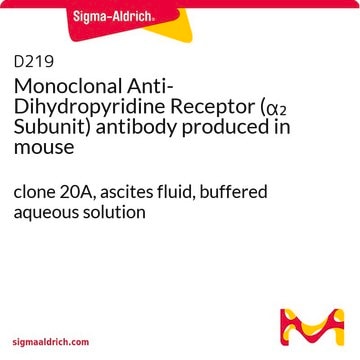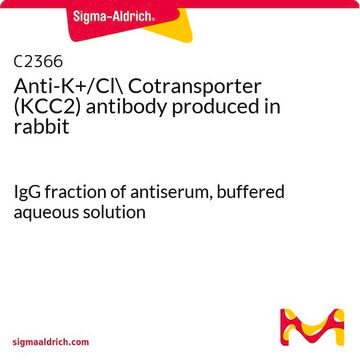C5105
Anti-Calcium Channel (α2/δ-1 Subunit) antibody produced in rabbit
affinity isolated antibody, lyophilized powder
Synonym(s):
Anti-CACNA2, Anti-CACNL2A, Anti-CCHL2A, Anti-LINC01112, Anti-lncRNA-N3
About This Item
Recommended Products
biological source
rabbit
Quality Level
conjugate
unconjugated
antibody form
affinity isolated antibody
antibody product type
primary antibodies
clone
polyclonal
form
lyophilized powder
species reactivity
mouse, rat, pig, human
technique(s)
western blot (chemiluminescent): 1:200 using rat brain membranes
UniProt accession no.
storage temp.
−20°C
target post-translational modification
unmodified
Gene Information
human ... CACNA2D1(781)
mouse ... Cacna2d1(12293)
rat ... Cacna2d1(25399)
Related Categories
General description
Immunogen
Application
Biochem/physiol Actions
Target description
Physical form
Preparation Note
Disclaimer
Not finding the right product?
Try our Product Selector Tool.
recommended
Storage Class Code
11 - Combustible Solids
WGK
WGK 2
Flash Point(F)
Not applicable
Flash Point(C)
Not applicable
Choose from one of the most recent versions:
Already Own This Product?
Find documentation for the products that you have recently purchased in the Document Library.
Our team of scientists has experience in all areas of research including Life Science, Material Science, Chemical Synthesis, Chromatography, Analytical and many others.
Contact Technical Service








